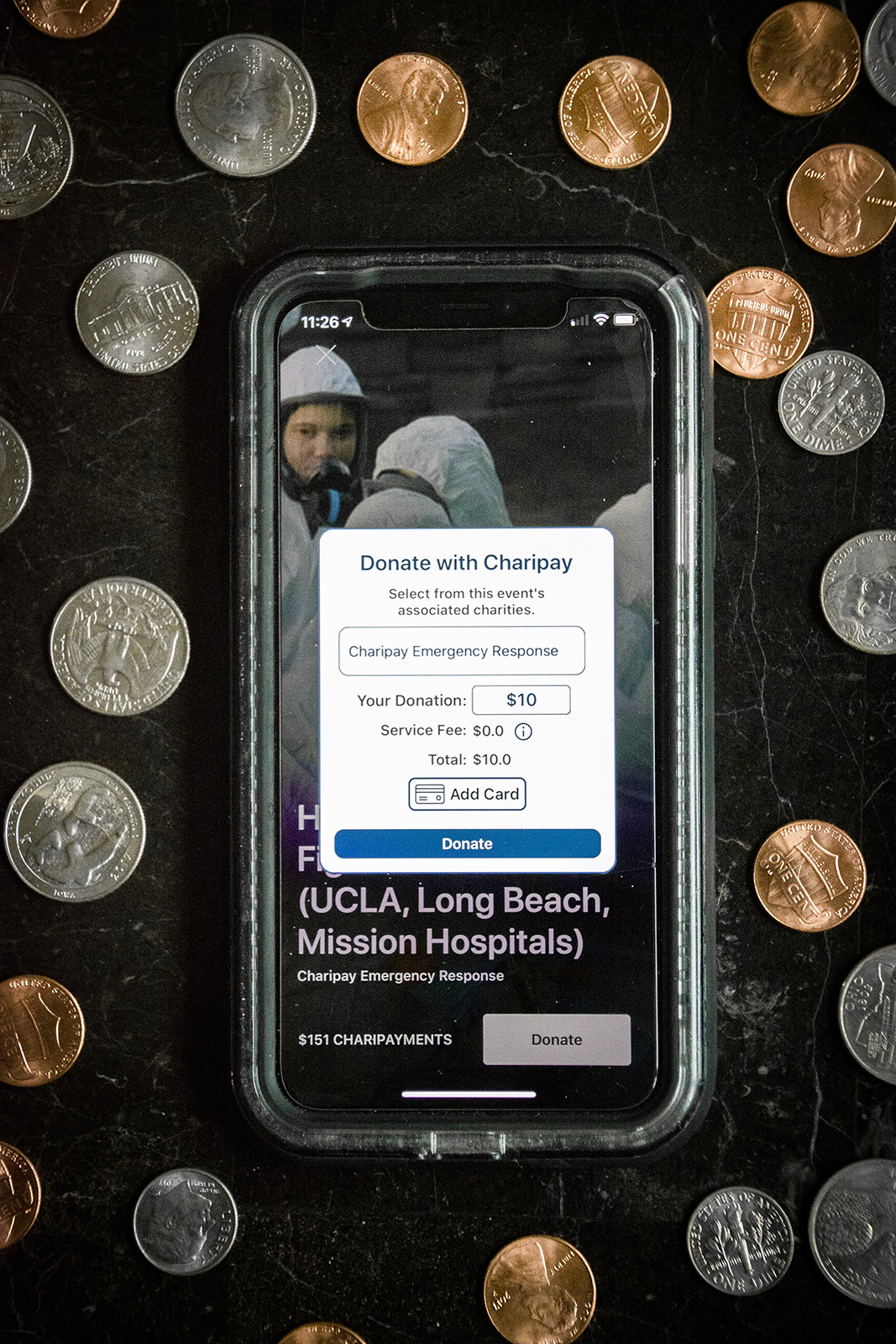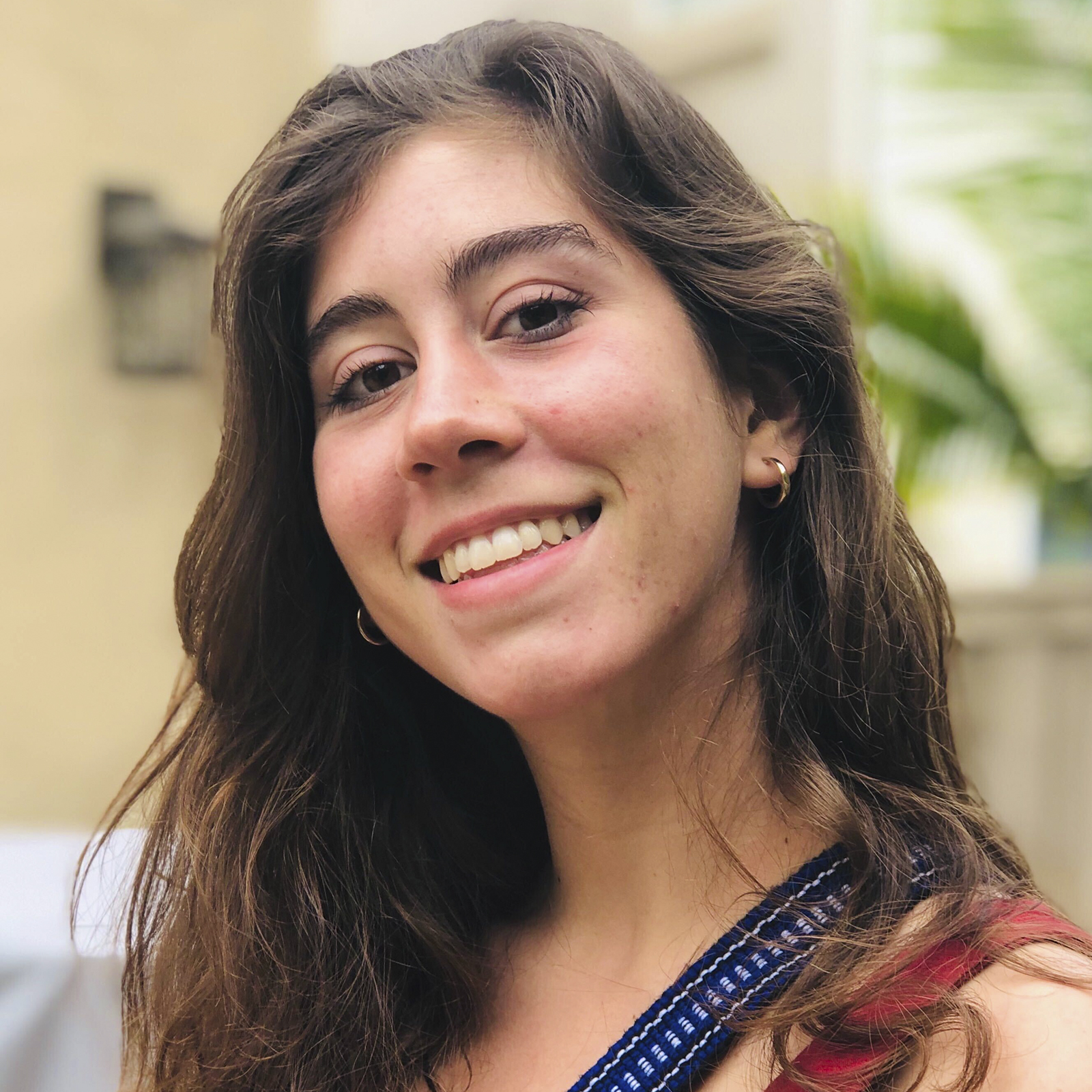Student-created app Charipay streamlines process of donating to charity

UCLA students created a startup for people to donate directly to charities using an iOS app. (Sakshi Joglekar/Daily Bruin)

By Maddie Rausa
May 19, 2020 7:34 p.m.
Some UCLA students felt that the process of donating to charity needed to be quicker, easier and more transparent. As a solution to this, they made an app.
In 2019, a group of UCLA students founded Charipay, a startup that lets people donate directly to partner charities using an iOS app. The app now features over 40 charities, including one established by the Charipay team itself for coronavirus relief.
Even when he wanted to help a cause, it was often difficult and time-consuming to find a trustworthy charity, said Kevin Yu, a Charipay co-founder and fourth-year economics and cognitive science student.
Charipay was founded to address this need, said Kyler Gilbert, a Charipay co-founder and fourth-year communication and economics student. Gilbert was the first to come up with the idea for the app.
Users can browse the app for causes to donate to or use the search option to find specific charities or causes. The app keeps track of every cause the user has donated to on their profile.
Samantha Chandra, a fourth-year business economics student, said that before she used Charipay, she often considered donating to charities but never followed through because of all the research required.
She recently donated to Charipay’s COVID-19 fund.
“Once I linked (my credit card), it makes it very easy. … It’s almost like Venmo,” Chandra said.
The Charipay team never touches the donations; donations are processed through an online payment technology called Stripe, Gilbert said.
The team also researches every charity that joins the platform to ensure they are transparent about how they use their funds, Gilbert added.
Because Charipay is a small startup, one of the biggest challenges has been gaining the trust of organizations, Gilbert said.
“It’s so easy for charities to stick with what they have right now,” said Abdullah Elqaq, another co-founder of Charipay and a third-year computer engineering student.
This challenge made the first charity joining the platform all the more exciting for them, Elqaq said.
Many charities have joined since then. They recently received a message from Make-A-Wish Hawaii, a charity they had hoped to work with since the beginning, Gilbert said.
In the future, the team hopes to implement more social media features, allowing users to share causes with each other. The purpose would not be to flaunt donations, but to give charitable causes more publicity through users’ social networks, said Jason Lim, the technical lead of Charipay and a first-year data theory student.
“(We’re) allowing people to read more about and to get educated about how they’re helping these specific areas,” Gilbert said.
Charipay COVID-19 Emergency Relief Fund
Since the beginning of the novel coronavirus outbreak, the team has put most of its work toward Charipay’s own charity, the Charipay COVID-19 Emergency Relief Fund.
Charipay uses donations to the fund to purchase personal protective equipment, or PPE, directly from manufacturers. Team members then personally deliver the PPE to medical centers, including The Queen’s Medical Center in Hawaii, St. Joseph Health in Texas and California, MemorialCare Long Beach Medical Center and UCLA Health.
Their first shipment of PPE arrived recently, which included over 1,200 face shields and over 1,000 masks, Gilbert said.
Graham Tse, the chief medical officer at MemorialCare Miller Children’s & Women’s Hospital Long Beach, said donations like Charipay’s help hospitals prepare for what they expect to be a long-term situation.
“It’s ensuring that we have enough PPE not just today, but two months down the road, four months down the road, a year from now,” Tse said.
Lim and Elqaq both said they appreciate the ability to make a positive difference through Charipay.
“I’d taken on (other projects) before but this is the first one that kind of had more of a philanthropic side to it,” Elqaq said. “Which I thought was really cool.”


